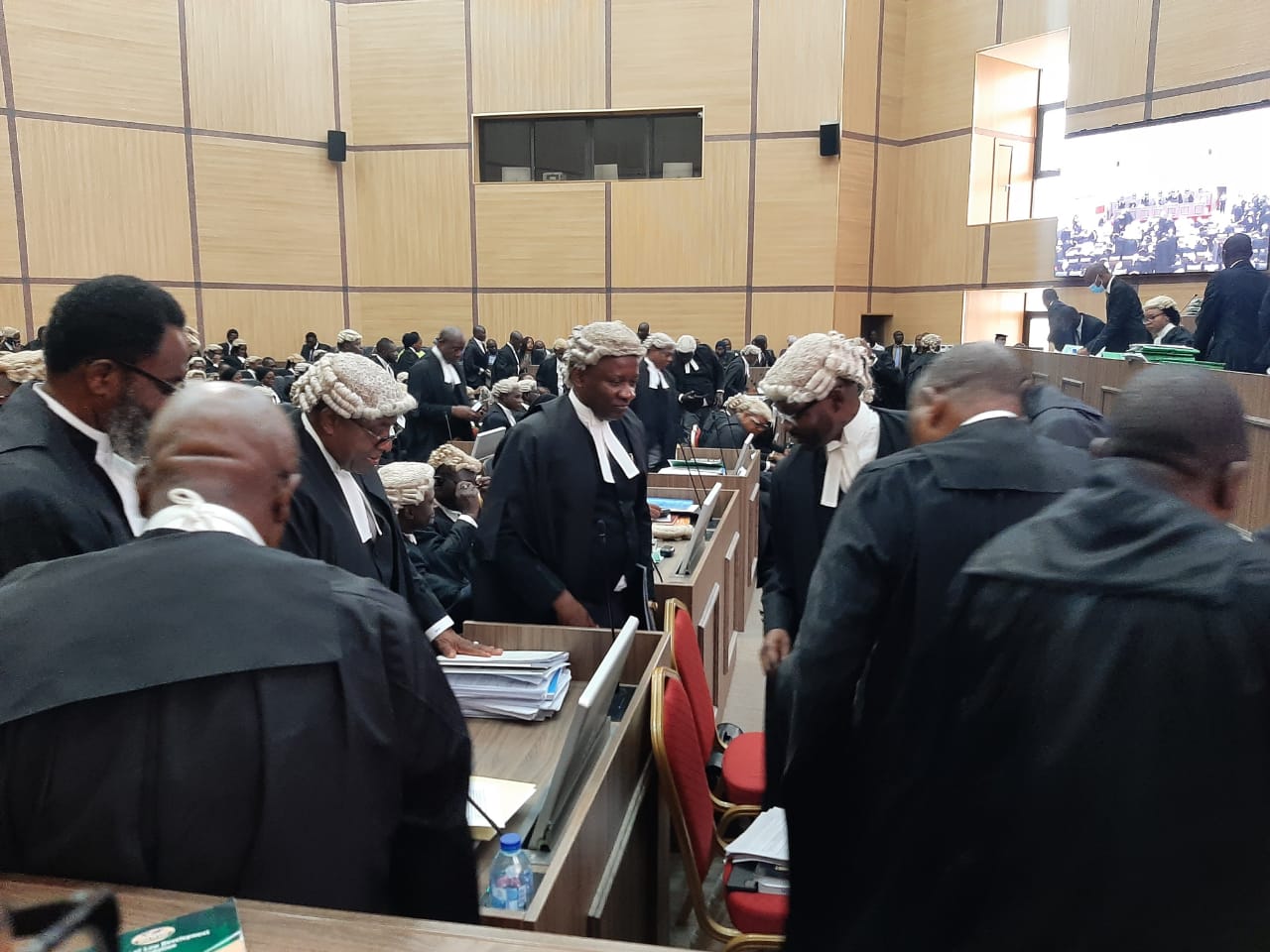Emmanuel Agim, justice of the supreme court, says the deposition of the registrar for Chicago State University was not authenticated for use in Nigeria.
The supreme court on Thursday dismissed the application for leave to file fresh evidence against President Bola Tinubu by Atiku Abubakar, candidate of the Peoples Democratic Party (PDP), in the February 25 election.
Abubakar had secured an order from the US district court for the Northern District of Illinois, directing the release of Tinubu’s academic credentials.
Abubakar and PDP alleged that Tinubu submitted forged academic credentials to the Independent National Electoral Commission (INEC) to enable him to contest the election.
Advertisement
However, the court held that it lacked jurisdiction to entertain an issue that was not presented during the election petition tribunal proceedings.
The court also dismissed the entire petition seeking to overturn the verdict of the tribunal which affirmed Tinubu’s election.
Agreeing with the lead judgement delivered by Inyang Okoro, Agim said there was nothing authenticating the documents obtained by the appellants.
Advertisement
“The deposition for this additional evidence is inadmissible,” the justice said.
“If a document is inadmissible, you cannot ask that you should be allowed to bring it in as fresh evidence.
“A reading of the deposition exposes that it is not authenticated by the seal of the authority before whom it was issued.
“A deposition from another country to be used in Nigeria should prima facie, give features of authentication such as the official seal of the court where it is sworn or if it is before a notary public, a seal or signature.”
Advertisement
He said if it is sworn in the Nigerian embassy, high commission or consulate in that country, the signature of the officer authorised to do so and the seal of the embassy, high commission or consulate must be seen.
“Such authentication is an assurance of the origin and authenticity of the foreign deposition,” Agim added.
“In our present case, the certified shorthand reporter before whom the deposition was made did not authenticate the deposition with her seal.
“She merely signed a certificate of report bearing her name and number. Being a deposition from another country, it cannot be used in Nigeria without authentication. The authentication of the oath administration is mandatory.”
Advertisement
Agim also expressed concerns as to why the deposition was made in the law office of Abubakar’s lawyer instead of the court which gave the order.
“I’ve wondered why the deposition made… was not made before the court,” he said.
Advertisement
“And if made elsewhere in the law office of the first appellant’s attorney why was it not filed in the above-mentioned court because of the peculiar circumstances of this case and adopted as the deposition ordered to be made by the court so that it can form part of the record of the court.”
Agim also faulted the appellants for failing to secure a letter from CSU disclaiming the records Tinubu forwarded to INEC.
Advertisement
“I have continued to wonder why the appellant did not use the advantage of the order of the district court that the college produce documents and deposition concerning those certificates,” he said.
“Why they didn’t use that advantage to secure a letter from the college under its letterhead, seal and signature disclaiming the certificate presented by the second respondent to INEC as not one issued by the college?
Advertisement
“Instead, they resorted to this deposition which has no features of authentication, thereby rendering it spurious and inadmissible.”
Add a comment






